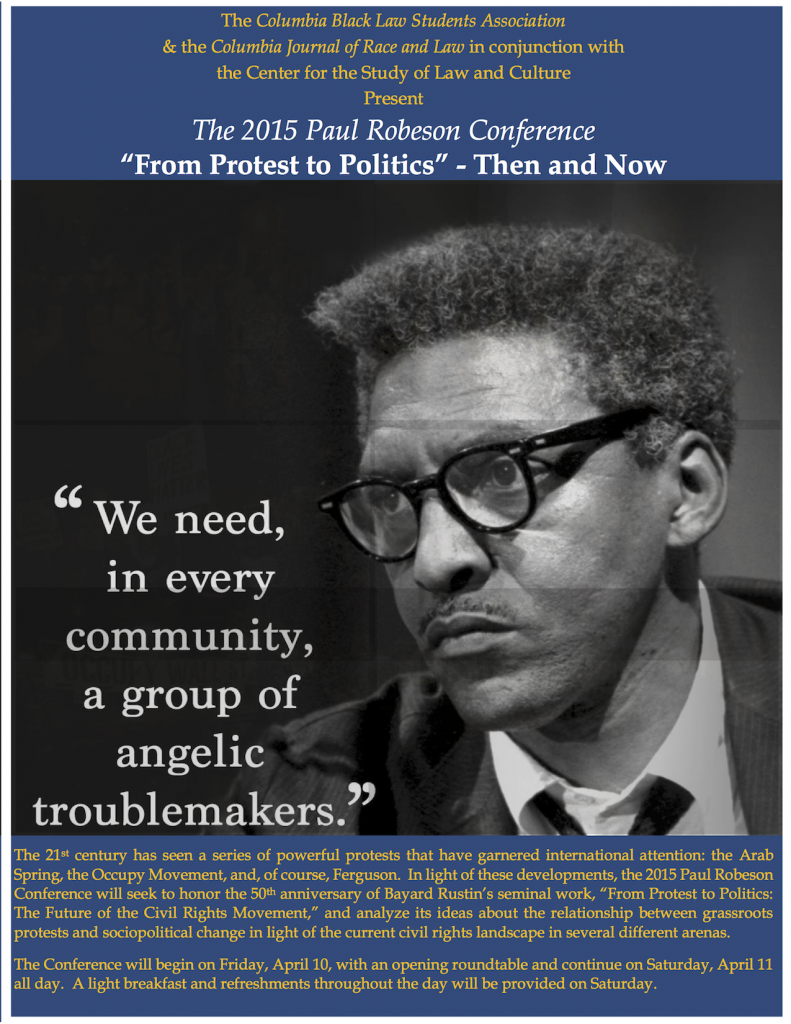Recap: Paul Robeson Conference, Spring 2015
Posted on Apr 3, 2019The 2015 Paul Robeson Conference (April 10 – April 11) was inspired by Bayard Rustin’s 1965 article From Protest to Politics: The Future of the Civil Rights Movement, one of the seminal texts of the Civil Rights Movement. Over the course oftwo days, conference panelists and participants explored Rustin’s essay and considered the continuing relevance of its analysis in a world where the challenges facing civil rights advocates have taken forms Rustin himself could not have foreseen. In light of several prominent protest movements that have achieved varied levels of success over the past decade—such as the Arab Spring phenomenon for democratization in the Middle East, the Occupy movement for economic reform and wealth equality, or the Ferguson protests for police reform and the revaluation of Black life—Rustin’s thesis is particularly important; how can advocates ensure that such grassroots movements turn into meaningful sociopolitical change? Kendall Thomas, Nash Professor of Law, introduced the Conference themes and moderated a panel discussion among a distinguished group of leaders in the civil rights world about Bayard Rustin’s work and writing. Guests had the opportunity to hear about the role of protest politics and Rustin’s theory of political change in several key arenas including mass incarceration and immigration, economic justice and labor rights, political process and voting rights, access to housing and education, and intersectional erasure of women and sexual minorities within the mainstream racial justice paradigm. The Conference concluded with closing remarks by Olatunde Johnson, Professor of Law.
See historical event details here: http://centerforjustice.columbia.edu/event/2015-paul-robeson-conference-protest-politics-now/
